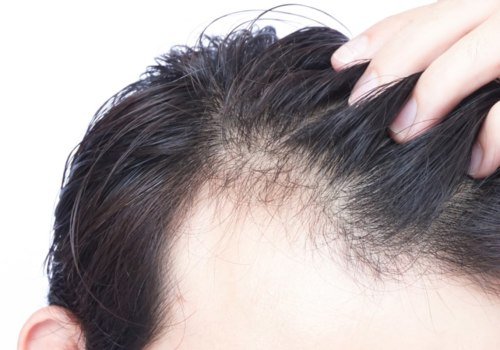Hair loss can be permanent or temporary. It is impossible to count the amount of hair lost on any given day. You may lose more hair than usual if you notice a large amount of hair in the drain after washing your hair or strands of hair on the brush. Technically, permanent hair loss, equivalent to a cancellation, occurs once the follicles are scarred or become dormant.
This can happen through prolonged self-inflicted damage, such as using cuckolds constantly, through an accident such as a burn or cosmetic procedure gone wrong, or simply by doing nothing to prevent genetically susceptible follicles from dying. Hair loss can happen to both men and women at any stage of life. However, when, where and why does it occur, it will often give clues as to whether the situation will be lasting. Sometimes hair loss is a temporary experience that will pass over time.
In other cases, hair loss can be permanent, even progressive. Our hair loss surgeons can help you address the causes of your hair loss, whether the condition is determined to be a short-term or long-term problem. At Leonard Hair Transplant Associates, we use the most advanced techniques and technologies available to deliver optimal results with greater comfort than ever before. When hair loss is triggered by predisposed genetic causes, follicles are also affected and miniaturized.
This condition cannot be overcome without extensive hair treatment and this is called permanent hair loss. However, if the stressor stays with you, hair loss can last a long time. People who are constantly under a lot of stress may have excessive hair loss in the long term. Most healthy people lose up to 100 strands of hair per day.
As part of the growth cycle of your hair, new strands grow and take the place of those who change. But sometimes you are surprised by a larger than usual strand of hair, stuck in the brush or clogging the shower drain. Then you ask yourself: “Am I losing hair permanently?. Alopecia areata is often associated with an autoimmune disease, so it is believed that some forms of hair loss may be caused by one of these medical conditions or are at least somehow related to it.
Diabetes and lupus are two autoimmune diseases that can cause hair loss. This type of hair loss may not always be reversible, sometimes it can be permanent. But medications and hair restoration surgeries can help compensate for hair loss. Minoxidil was widely used to treat high blood pressure, but researchers found that one of the drug's side effects was hair growth in unexpected areas.
In the hair bulb, located at the base of the follicle, cells divide and grow to produce the hair shaft, which is made from a protein called keratin. About 15 percent of the hairs emerge from the follicle as a single hair, and 15 percent grow in groups of four or five hairs. But, unless these factors trigger female pattern hair loss (or the mechanic drops a cigarette into the engine), there should be no permanent damage and hair growth should return to normal within a few months. These therapies can slow down or prevent further hair loss, and may stimulate the growth of follicles that have been dormant but are still viable.
However, hair loss most often occurs in women after menopause, indicating that the condition may be associated with a decrease in female hormones. Alopecia areata It develops in otherwise healthy people, this disease that can cause round patches of baldness on the scalp, diffuse hair loss or, in rare cases, complete hair loss. Minoxidil lotion is applied to the scalp and can work by increasing blood flow, and therefore nutrition, to the hair follicles. The most common cause of permanent hair loss in men and women is hereditary hair loss, also known as male and female pattern baldness.
You'll do some damage if you always drag the lights, burn yourself or drive in the wrong way, and when it comes to your hair, some styling habits can leave your scalp with obvious signs of wear and tear, literally. Hair growth can be restored by inhibiting the family of Janus kinase (JAK) enzymes found in hair follicles, according to researchers at Columbia University Medical Center (CUMC) in New York City, NY. An underactive thyroid, a medical condition called hypothyroidism or an overactive thyroid, or hyperthyroidism, can cause hair loss because each condition causes a hormonal imbalance. When the strands leave the scalp due to such reasons, it is known as temporary hair loss, in which the follicles are not damaged.
Hair loss affects millions of men and women, but despite decades of research, no cure is yet available. Chemical treatments can cause thinning of the hair through breakage and, after prolonged periods, braiding and ponytails can pull hair out at the root, leaving patches of baldness. . .
gastric sleeve hair loss




